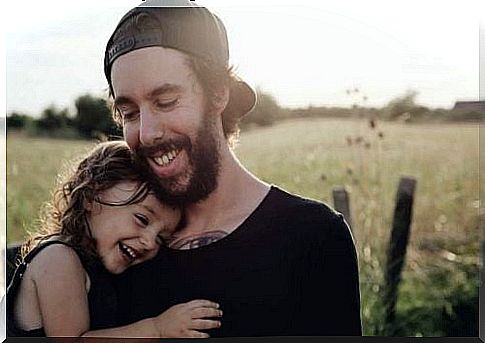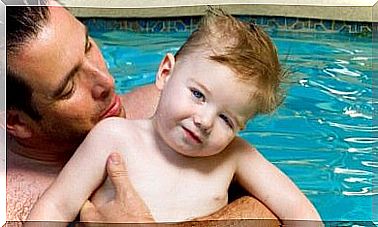Harvard Secrets For Raising A Good Child

Every parent’s dream is – or at least should be – to raise a good child who makes a positive contribution to the society in which he lives and behaves responsibly. But how to do it?
In this article, we’ve compiled a number of tips from none other than Harvard experts for raising a good child.
All of us parents sometimes need extra advice in order to cope with our children. Being a parent is a wonderful thing, but it is also an inexhaustible source of stress, problems and doubts. Raising a good child is always difficult, and most of the time we don’t know if we are doing it right or not.
Fortunately, there are many books, experts and institutes that can help us. One of these is the prestigious Harvard University, which counts some of the best academics on a global scale. Several of them shared a whole range of useful tips to help parents cope with anxieties and fears.
How to raise a good baby according to experts
The main pillars of a good education are basically three: responsibility, respect and empathy. Raising emotionally healthy children is difficult, but not impossible. First of all they must feel loved and respected by their parents, in order to imitate this behavior and then have it with others.
Teach them to be grateful
Being grateful is a good way to learn to respect others. Through gratitude, children realize how lucky they are to have people who love and care for them.
Teach them to be grateful for the little things, like their parents’ breakfast each day. Giving thanks is a universal principle, which improves communication and creates a nice atmosphere. Furthermore, according to several studies, children who give thanks are in better health than those who don’t.
Family values: respect and understanding
A child must be clear about the values he is taught at home. These will influence his future decisions and will also be valid in other environments, such as school, or with other people, such as friends. It is vital that the child knows that he must first respect others and treat them politely. It is also important that he knows how to defend himself in the face of an unjust situation, but also that he knows how to forgive.
Spend as much time with them as possible
Parents today barely have time to raise their children. Work takes them many hours, and when they come home from work, the only thing they want is to relax, certainly not to play.
Make sure you make time for the children, as it is essential for their education. Set aside one day a week for them, encourage them to trust you, and show them that they are important to you. A child will prefer receiving parental affection to toys that are used to buy his love.
Teach them to be compassionate
One of the characteristics of good people is compassion. Raising a good child means teaching him to look beyond hatred and resentment. It is not only others who make mistakes, but us too.
Furthermore, a good child must learn to protect the weak and to rebel against injustice. He is compassionate, but he does not allow others to treat him and the people he loves badly. We are all worth the same and no one deserves to be laughed at or humiliated.
Children are the world’s most precious resource and its best hope for the future
– John Fitzgerald Kennedy–
Teach them to take responsibility for their actions
Raising a good child means teaching him to be responsible. All the decisions he makes, both the good ones and the bad ones, will depend on him. He must be aware of the consequences his actions can have. He will happen to make mistakes, and he will have to take responsibility for them.
Invite him to be a brave person and to express his opinions fearlessly, but always with respect. Talk to him about important things, such as morality, ethics, and dignity.
Teach them to express their emotions in a healthy way
It’s good to express emotions and feelings, and your child needs to know that. Many parents see this as a sign of weakness, but it is not. Children should be encouraged to be themselves and express what they feel. Over the course of their lives they will experience several changes, some of which, for the worse.
We cannot protect them in certain situations, but we can teach them to get up and move on. Learning to counter negative emotions is a difficult process, but with the help of good parents they will make it.









